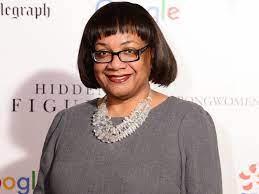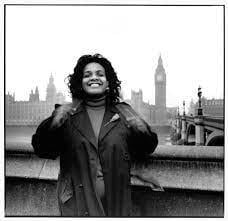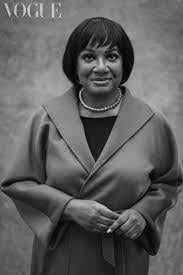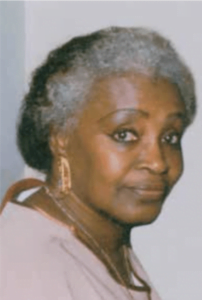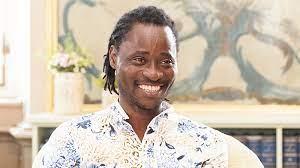Born in London in 1953, Dianne Abbot would go on to become the first Black woman ever elected to Parliament, representing the diverse constituency of Hackney North and Stoke Newington. Abbot remains an important voice on the left of the Labour Party. Under Ed Miliband, Abbot served on the shadow health team (2010-2013).
During Jeremy Corbyn’s time as Labour Leader, Abbot’s career progressed further. A key ally to Corbyn, Abbot was consecutively Shadow Secretary of State for International Development (2015-2016) and Shadow Home Secretary (2016-2020). Since Keir Starmer’s election, Abbot has been sidelined, and from her position on the back benches has at times been critical of Starmer.
1953
Jamaican
Diane Abbot was born in London to parents who were originally from Jamaica and had immigrated to the United Kingdom in the early 1950s. Her father worked as a welder and her mother as a nurse. She was educated at Harrow County Grammar School for Girls and received a degree in history from the University of Cambridge in 1973.
1973- Received a degree from the University of Cambridge
1978-80- Was administration trainee for a Race Relations Officer at the National Council for Civil Liberties.
1980-3- Researcher and reporter at Thames Television
1982- Press officer for Greater London Council
1982-6- Served on the Westminster City Council
1983-5- Researcher at TVam
1985-6- Press officer at the Greater London Council under Ken Livingstone
1986-7- Head of Press and Public Relations at Lambeth Council
1987- Selected as Labour party candidate for the London constituency of Hackney North and Stoke Newington, then winning office and becoming one of the first members of the House of Commons of African descent
1990s- Served on the Treasury Select Committee of the House of Commons and went on to serve on the Foreign Affairs Select Committee
2008- The Law Society presented her with a special human rights prize
2010- Abbott ran for party leader, but her bid was unsuccessful
2010- She was named hadow minister for public health
2015-6- She served as Shadow Secretary of State for International Development
2016- Shadow Secretary of State for Public Health
2017- Re-elected to her seat in the House of Commons
2020- She stepped down as Shadow Home Secretary after Keir Starmer replaced Corbyn as Labour leader
2022- Abbot wrote a memoir A Woman Like Me , published in summer 2022, marking her 35 years in parliament
Abbott worked as a civil servant in the Home Office after University. From 1978 to 1980 she was an administration trainee to become a Race Relations Officer at the National Council for Civil Liberties. From 1980 to 1983 she was a researcher and reporter at Thames Television and then became a researcher at the breakfast television company TV-am from 1983 to 1985. She was Press Officer at the Greater London Council under Ken Livingstone from 1985 to 1986, and Head of Press and Public Relations at Lambeth Council from 1986 to 1987 and was active on race and civil liberties issues.
Abbot began her political career in 1982. She served on the Westminster City Council (1982–86) and in 1987 was selected over the sitting Labour member of Parliament as the party’s candidate for the London constituency of Hackney North and Stoke Newington. Easily winning office, she became the country’s first Black female member of Parliament and, with Bernie Grant and Paul Boateng, one of the first members of the House of Commons of African descent.
For most of the 1990s she also served on the Treasury Select Committee of the House of Commons and also went on to serve on the Foreign Affairs Select Committee. She gave birth to her son in October 1991, one year before the House of Commons introduced a crèche. She was obliged to attend Parliament and vote throughout her pregnancy and after giving birth on a Monday, she was made to work until the Thursday before, and returned to parliament eight days later.
Outspoken on many issues, Abbott occupied a left-of-centre position in the Labour Party during the 1990s, when Tony Blair’s reform (`modernisation’) programme abandoned many of the party’s traditional socialist policies. She continued to serve in Parliament, and became known for her support of human rights issues. Abbot was a vocal opponent of efforts to extend the amount of time that terror suspects could be detained without charge. Her work on the issue was noted by the organisations JUSTICE, Liberty, and the Law Society, which jointly presented her with a special human rights prize in 2008. Her speech on civil liberties, in the debate on the Counter-Terrorism Bill 2008 won The Spectator magazine’s Parliamentary Speech of the Year award, and further recognition at the 2008 Human Rights awards. Abbott chaired the All-Party Parliamentary British-Caribbean Group and the All-Party Sickle Cell and Thalassemia Group; she also founded the London Schools and the Black Child initiative, which aimed to raise educational achievement levels amongst Black children.
After the 2010 British general election, in which Labour lost its majority, Abbott ran for party leader, but her bid was unsuccessful. Later in 2010 she was named Shadow Minister for Public Health. Despite Labour’s poor showing in the 2015 general election, Abbott hung on to her seat, going on to serve as Shadow Secretary of State for International Development (2015–16) before becoming Shadow Secretary of State for Public Health in June 2016. When Labour leader Jeremy Corbyn reshuffled his shadow cabinet in October, Abbott was elevated to the post of Shadow Home Secretary. She was re-elected to her seat in the House of Commons in the June 2017 snap general election. After Keir Starmer replaced Corbyn as Labour leader in April 2020, Abbott stepped down as Shadow Home Secretary.
Abbot wrote a memoir A Woman Like Me ,published in summer 2022, marking her 35 years in parliament.
Abbott had a brief relationship with Jeremy Corbyn, who later became the Labour leader, when he was a councillor in north London in the late 1970s. In 1991 she married David P Ayensu-Thompson a Ghanaian architect. They had one son together, James, before divorcing in 1993.
https://www.politics.co.uk/reference/diane-abbott/
Diane Abbott: The Authorised Biography by Samara Linton and Robin Bunce
https://www.dianeabbott.org.uk/about-diane
https://www.thetimes.co.uk/article/how-corbyn-revealed-abbott-was-his-lover-xbfrk8jcmh3
